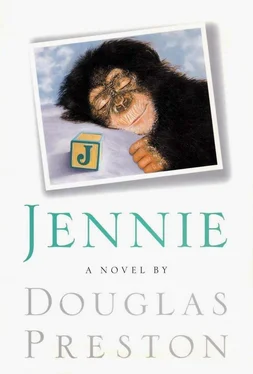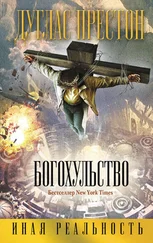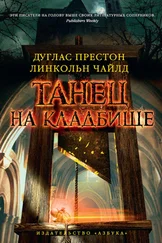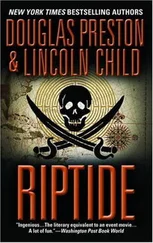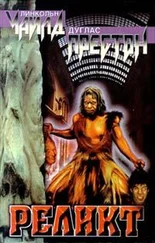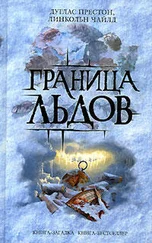As a boy, I never developed an interest in machines or tinkering. I was captivated by the far more complicated workings of animals. I loved bones, their shapes, the way they fit together, the puzzle of assembling them. I loved the play of sunlight through the hollows of a skull and across the parietals, giving the skull the mysterious glow of a Greek temple. I loved the curve of the orbit and the delicacy of the zygomatic process. It was a wonder to me that such structures could exist, formed in secret under the covering of flesh, exposed in their beauty only by death.
At that time, woods and pastures surrounded our house outside Boston, and I often collected dead animals and skeletons and brought them home in a wheelbarrow. The larger animals, such as cows and horses, I laid out on the roof of an old shed near our house, where they would be beyond the reach of dogs, but where the crows could peck off any remaining meat. The smaller animals I buried for a month or two. My parents, to their credit, allowed me the full indulgence of my hobby, although my mother often worried about germs and fire from the kerosene I used to degrease the bones.
My most exciting discovery of those years was finding a dead bull moose near the Sudbury swamp. I found him by tracking the smell for over a mile through the woods. He lay peacefully on a bed of sphagnum moss, a massive animal with a magnificent rack. He had expired recently and was in no condition to be transported, but I went back again and again, collecting the odd leg or antler as the dogs tore apart the carcass. Sometimes bones would be dragged hundreds of yards into the woods, and I had to search the underbrush for hours. In three months I had everything but the rib cage and pelvis, which needed more time, and those I was able to rescue in the spring, just as the snow was melting.
When the bones of one of my animals had been stripped of flesh and skin, I set to work. I boiled them in a kettle behind the barn, carved off the cartilage, soaked them in a tub of kerosene, and then washed that out with soap and water, bleached them, and laid them back on the shed roof for a final sunning. When the bones were a pure lovely white, and light as seasoned pine, I mounted the skeleton. It was a tedious process of drilling, screwing, gluing, wiring, and hanging. The end result was never, to my great disappointment, as elegant as the mounted skeletons in the Boston Museum of Natural History. Nor did my larger skeletons stay standing very long. The mounted moose lasted until I tried to set an antler in the pedicle. That was the proverbial straw, and the whole thing came tumbling down with a noise that sent my poor mother out into the yard in a panic, thinking I had fallen off the roof. It was a bitter blow and I never had the heart to rebuild it.
My father was a staunch atheist. In New England at the time, atheism was tolerated as an eccentricity, not like Unitarianism, which was much worse. He said he had been converted to atheism at the age of six, when his Sunday school teacher had described with relish the eternal fires of Hell. He trotted out his atheism with great pride, while everybody rolled their eyes. I always believed (at least until the end) it was a case of the lady protesting too much. “Mary and Joseph,” he said, “turned a very embarrassing situation into one of the greatest coups in history. Clever, clever, clever!” And he wagged his fat finger back and forth in everyone’s deliciously scandalized faces.
My mother took us to church every Sunday. This was fine with my father. He used to say: “Your grandmother sent me to church every day, and it did me no harm. It was in church that I was converted to atheism. Also, it’s a wise hedge. I myself might take it up on my deathbed, just in case.”
I once asked my mother, “Aren’t you worried that Dad’s going to go to Hell?”
“God doesn’t send good people to Hell,” she said with absolute serenity of conviction. She had a deep faith in the goodness of people, and by extension the absolute goodness of God. In my mother’s cosmogony, if there were a Hell, it would be an empty place indeed.
I always believed my father would take up religion on his deathbed, if he were given the time. He died in St. Clare’s Hospital in 1958, of congestive heart failure. St. Clare’s is across the street from the Boston Museum of Natural History (I can see its facade from my window as I write), and when I got the call from my mother I was the only one of his children there. He was lying in a private room in the intensive care unit, tubes coming out from the most unlikely places, his face gray and his bulky body and fleshy face melting heavily into the bed. The wild, Einsteinian tuft of hair that usually stood out from his forehead was laid low, soaked with sweat. There was a look of panic in his eyes. When I came in he raised his hand and gestured for me to come over; he clearly had something he wished to say. This is it, I thought. He’s going to send for the minister or the priest or (it was not inconceivable) the rabbi. I leaned over and he gripped my forearm with fingers of steel, his strength shocking.
“Listen!” he said, so loudly the nurse started and admonished him not to excite himself.
“Listen to me!” he hissed. “You’ve got to promise me something. I don’t entirely trust your mother in this. You know she believes in God . She doesn’t understand.”
“Yes, yes, of course, anything,” I said. “Anything you want.” I was suddenly puzzled. This was not how I imagined the conversation to unfold. His voice resonated in the tubes coming out of his nose, making him sound like Donald Duck. It was not a dignified scene.
“No matter how bad it gets, no matter how sick I am...”
And he paused to catch his breath.
“... no matter if I become a complete drooling vegetable, no matter if my EEG is flat as a pancake...”
Wheeze .
“Yes?” I said.
“Even if there is no hope at all, none whatsoever...”
Wheeze .
“Yes?”
Another wheeze.
“Don’t you, don’t you...”
Wheeze .
“... let them pull...”
Wheeze .
“... the plug.” And his grip relaxed and he sank back, with a look of peace finally on his face. “Promise?” he croaked.
“I promise,” I said. Mother, who had been hanging on to every word over my shoulder, was irritated.
“Henry, how many times do I, and the doctors and nurses, and now Hugo, have to make these promises? No one’s going to pull any plug, for heaven’s sake. I wish you’d find something else to worry about. I wish you’d just concentrate on getting better.”
“I’m concentrating,” he protested. “It isn’t working.”
And then he died.
My mother wept, mostly out of hurt and frustration. The old crank, in her mind, had wasted his dying breath without ever saying how much he loved us. Nor did he leave us with a touching farewell speech. But to me he had said as much in his own peculiar way, and shown his love just as fiercely, by demonstrating how afraid he was of leaving us. In fact, I never realized how much he loved us until his deathbed scene.
My father died just after I had graduated from Columbia University and had joined the curatorial staff at the Boston Museum of Natural History. His atheism gave me the freedom to reject Christianity without struggle or pain. It was at this time, dealing with my father’s death, that I had a conversion of sorts myself: I realized that evolution was, in fact, my religion.
This may, perhaps, sound eccentric. Let me explain. There can be no doubt: life is a miraculous thing, and even more miraculous is human intelligence. Our world, this earth, is a surpassingly beautiful place, perfectly suited to our needs. It is as if the world were created for us, so perfect is it. But this is an illusion; in fact, we were created for the world. The world is just right for us because we’ve been adapting to it for millions of years.
Читать дальше
